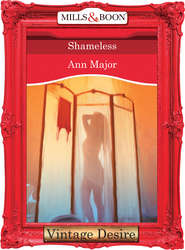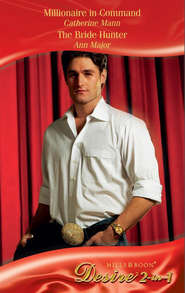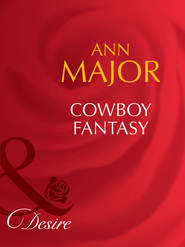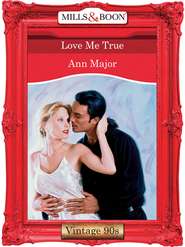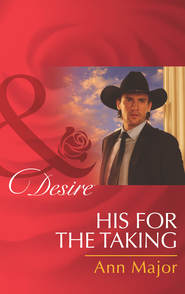По всем вопросам обращайтесь на: info@litportal.ru
(©) 2003-2025.
✖
The Hot Ladies Murder Club
Автор
Год написания книги
2018
Настройки чтения
Размер шрифта
Высота строк
Поля
“You are so sweet.”
“Yesterday was fun.” That wasn’t totally true.
“I was feeling so depressed after you left, so I went out for a drive. I saw a sign on Ocean. Darling house. There was a blue heron on the pier.”
Katherine probably wouldn’t qualify for a loan on a house on Ocean Drive. “Do you really need a pier? I mean do you fish or anything? And a seawall costs a lot to maintain.”
“I grew up in the country. Four brothers. I fish, hunt…So, can we see it together tomorrow? Nine? Your office?”
Hannah jotted down the address and agreed to meet her though she knew it was a waste of time.
Katherine was a sleek, elegant doctor’s wife on the wrong side of forty, who worked hard not to look it. She had a good body. When she wore skirts, she showed a lot of leg.
From what Katherine had told her, Hannah had gathered she’d been the other woman in the doctor’s nasty divorce ten years earlier and didn’t want to be blindsided by a younger, hotter version of herself.
“So, is he leaving you for another woman?” Hannah had asked when they’d been touring the garden of the house in Country Club.
“No, he said he just doesn’t look forward to coming home to me at night anymore.”
“Oh, Katherine…”
“It’s so unfair. He’s no prince. He’s overweight, older. He has nose hairs. He’s always clipping them when he follows me around yapping at me. And he’s no big deal in bed.”
“Then maybe he’s doing you a favor.”
“He’s leaving me!” Katherine had shrieked. “I’ll be all alone…again. He makes money. I was a lousy nurse before…”
After the phone call Hannah tried to unwind again, but Katherine’s restless energy had infected her. Hannah felt as uprooted as Katherine. She didn’t belong in Texas, but she couldn’t go home. The window over the sink was cracked an inch, so the roar of the surf and the smell of muggy, salt air and pungent, rotting sea things permeated the tiny kitchen—alien scents. She was used to grass and trees, to big-city life, to a cooler, softer climate. To glamour. To horror.
Hannah clenched her fingers. Who was she to judge Katherine? There was a big hole in her own life. Huge. Only her problems weren’t as simple as Katherine’s. Hannah couldn’t fix them by a divorce. If only Dom would give her a divorce.
They say if a frog hops into a kettle of water and you light a fire under it, the frog won’t jump out as the water warms up. He’ll die.
That had happened to Hannah twice before with men.
Sometimes she felt like she was that frog, dying, little by little. For nine months she’d been in exile, living, if you could call it living, while she waited for a miracle. Away from her friends, Georgia had become increasingly bored and unhappy, and that made Hannah feel guilty.
But you’re still alive, and Georgia’s alive.
If you want things to change, you have to do something, kiddo.
I ran away—that’s something!
Now it’s time to do more!
She opened her newspaper and recoiled when Joe Campbell’s avid white grin gleamed at her from the front page. Billboards, telephone book and now the newspaper! His black eyes burned through her defenses and made her feel totally vulnerable. Worst of all, he looked a little like Dom.
The article that ran beneath Campbell’s picture had to do with large medical malpractice awards in the county attracting big names like him to the city. The good news was that he’d just lost a big medical case to a Dr. Albert Crocker. The press about Campbell was unflattering, and neither he nor the partners of his firm had agreed to be interviewed for the article.
Beneath his story ran a headline, Neurosurgeons in Short Supply.
“Due to soaring malpractice insurance rates, doctors and insurance companies are fleeing Texas.…”
She was in no mood to read further. There was another story on mold litigation. Mold claims were paying off big in Texas, too. Homeowners’ insurance rates were soaring. Lots of people could no longer afford to insure their homes.
Hannah wadded up the paper. Then she unwadded it and snipped out his picture. Not knowing why she did that, she flung the rest of the newspaper aside and rushed to her refrigerator, where she eyed her half-full bottle of chardonnay on the lower shelf for several minutes before removing a milk carton. She couldn’t let Mr. Billboard and his hot eyes and the litigation-crazy world she was forced to do business in drive her to drinking alone.
Not that she was alone. The beach house was so small and the walls so thin she could hear Georgia in her room, her fingers tapping on her computer keyboard.
Georgia being home only makes it worse, and you know it.
How many more long, lonely and sometimes terrifying evenings without the intelligent companionship or solace of another adult could she endure? Then there were the nights when she couldn’t sleep, and worse, those when she could and had nightmares.
When her cupboard proved empty of clean glasses, she splashed milk into a white cup with little blue seagulls on it. She loved her dishes. After a sip, she went out to the mailbox. Again, there was no mail. That had been happening a lot lately. Which was odd. Not that it mattered, really. Almost nobody from her real life knew where she was, so there wouldn’t have been anything but bills and junk mail, flyers to pitch in the trash along with the newspaper and the brightly colored Big Burger wrappings.
Finishing her milk, Hannah stuffed the cup into her sink, which was overflowing with dirty dishes. She should cook and clean house, go downstairs to the washing machines with a load of clothes, maybe. But where to begin?
How ill prepared she was for ordinary, middle-class life. She was used to a man doing the heavy work, to a maid and a nanny, to long glamorous dinners with family and friends, not to tasteless fast food or housework in a remote beach house at the end of a long day. Oh, how she missed her beautiful things, her social life.
But there were things she did not miss.
At least, while here, she got to live on the gulf. Maybe the fragile barrier island was a thirty-minute commute from downtown Corpus and Georgia’s private school, but as soon as she’d seen the For Rent sign on the gray beach house at the edge of the dunes, the house had spoken to her.
When she was frightened or lonely, all she had to do was step outside to breathe in the smell of the gulf and to hear the seabirds, which she’d come to love…especially the brown pelicans and blue herons. Tonight there would even be a full moon. She would look up at the stars and know how small and tiny she and her problems were. The island with its rustic beach houses built on pilings and the glamorous high-rise condos and looser ambience attracted all kinds of people—tourists from all over the world, artists, rebels, runaways…like her.
She ran a damp rag across the counter to clean off the hamburger bun crumbs and headed toward the sink with the wet grit. She sighed. Then her thoughts turned to home again. Was her mother all right? He wouldn’t hurt her mother, would he?
He never had before.
You never left him before.
Her mother was famous. Even if she were impaired now, people would notice if Claudia Hayes had an accident. The story would make the papers. Hannah would know if her mother wasn’t all right.
Hannah glanced toward her phone and felt almost desperate enough to dial the home where her mother resided. But the roar of a motorcycle in the drive and then the sound of light footsteps and the jingling of tiny bells on her stairs saved her. Then she remembered. Taz still thought they were going to dinner.
“Knock, knock,” rang a cheery, determined voice.
Hannah started silently for the door.
“You’re supposed to say who’s there,” the voice jeered.
For once Hannah was almost glad she had a pushy, overly friendly neighbor.
A plump dark arm pushed the door open, and Hannah gave a little shriek of delight when she saw the wild creature gilded in her doorway by the fiery sunshine.
“Taz, is that you?”
“Sister Tasmania!”






